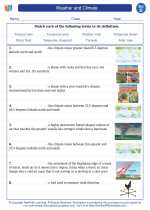Weather and Climate -> pollution
What is Pollution?
Pollution is the introduction of harmful substances or products into the environment. These harmful substances are called pollutants and can come in the form of chemicals, noise, heat, or light. Pollution can have detrimental effects on the environment, living organisms, and human health.
Types of Pollution
Air Pollution
Air pollution is the presence of harmful substances in the air, such as carbon monoxide, sulfur dioxide, and particulate matter. It can be caused by vehicle emissions, industrial processes, and natural sources like wildfires.
Water Pollution
Water pollution occurs when harmful substances contaminate bodies of water, such as rivers, lakes, and oceans. Sources of water pollution include industrial waste, agricultural runoff, and improper disposal of chemicals.
Land Pollution
Land pollution involves the contamination of the land with harmful substances, such as pesticides, plastics, and toxic waste. Improper waste disposal and industrial activities contribute to land pollution.
Noise Pollution
Noise pollution is the excessive amount of noise that disrupts the natural environment. Common sources of noise pollution include transportation, industrial machinery, and loud music.
Light Pollution
Light pollution refers to the excessive or misdirected artificial light that disrupts the natural darkness of the environment. It can have negative impacts on wildlife and human health.
Effects of Pollution
Pollution can have a wide range of effects, including:
- Damage to ecosystems and wildlife
- Health problems in humans, such as respiratory issues and skin diseases
- Contamination of water and food sources
- Disruption of natural habitats and biodiversity
- Climate change and global warming
Preventing Pollution
There are several ways to prevent pollution, including:
- Reducing the use of fossil fuels and promoting clean energy sources
- Proper waste disposal and recycling
- Regulating industrial emissions and effluents
- Conserving water and using eco-friendly products
- Supporting environmental policies and initiatives
◂Science Worksheets and Study Guides Fourth Grade. Weather and Climate
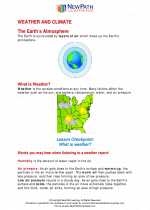
 Activity Lesson
Activity Lesson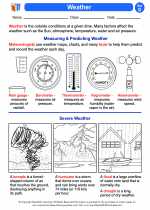
 Worksheet/Answer key
Worksheet/Answer key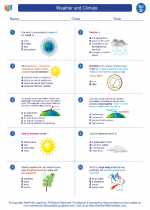
 Worksheet/Answer key
Worksheet/Answer key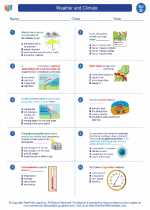
 Worksheet/Answer key
Worksheet/Answer key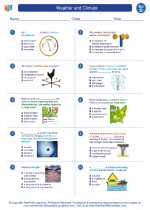
 Worksheet/Answer key
Worksheet/Answer key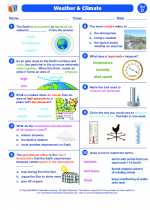
 Vocabulary/Answer key
Vocabulary/Answer key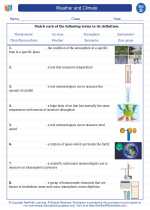
 Vocabulary/Answer key
Vocabulary/Answer key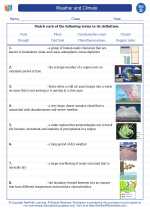
 Vocabulary/Answer key
Vocabulary/Answer key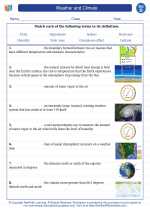
 Vocabulary/Answer key
Vocabulary/Answer key